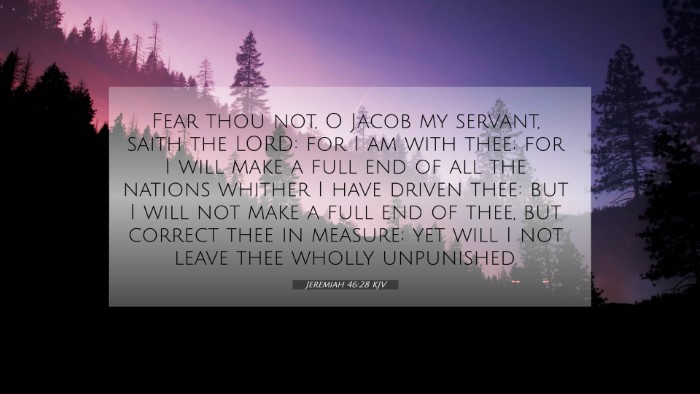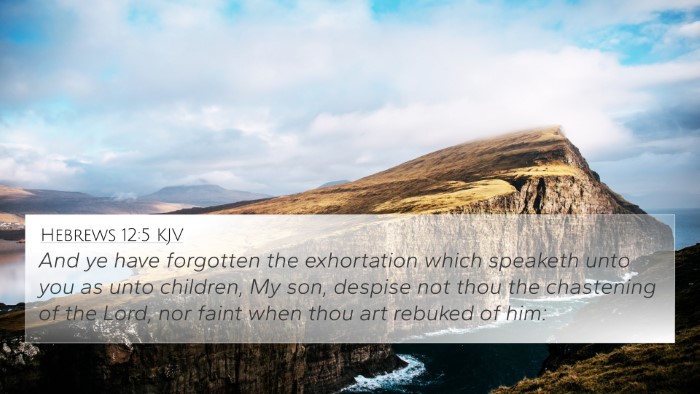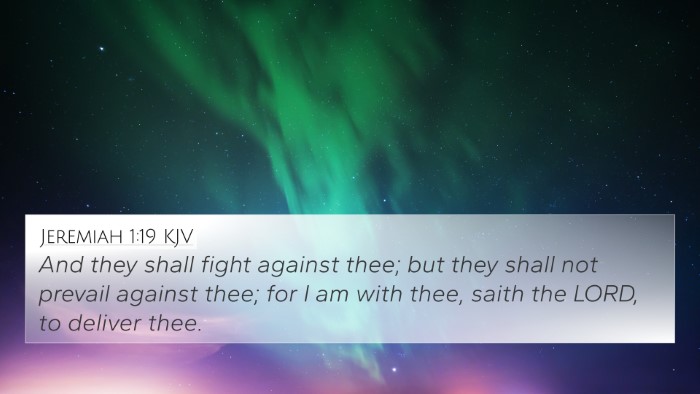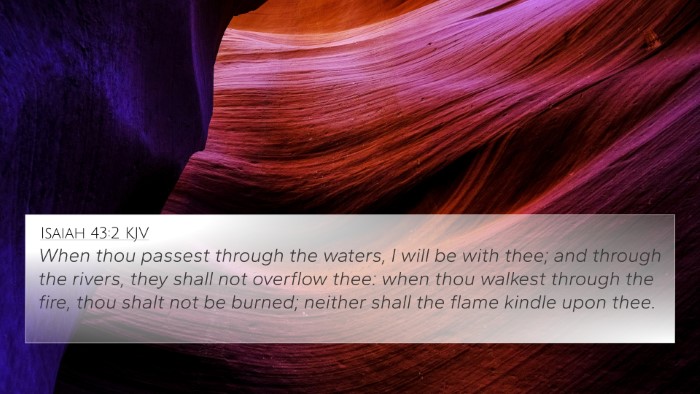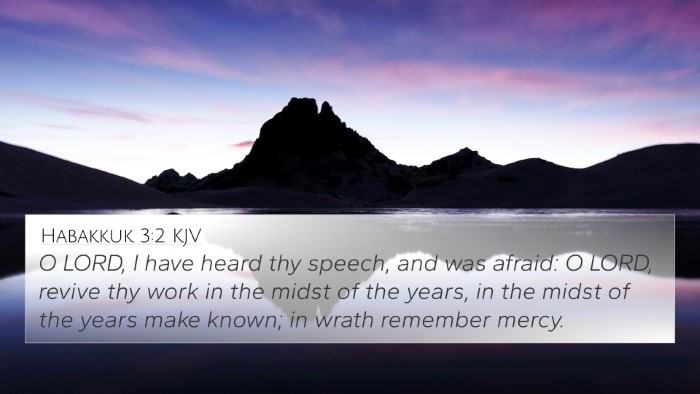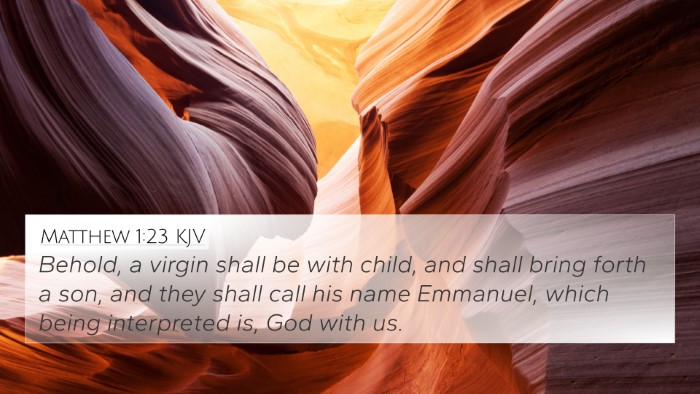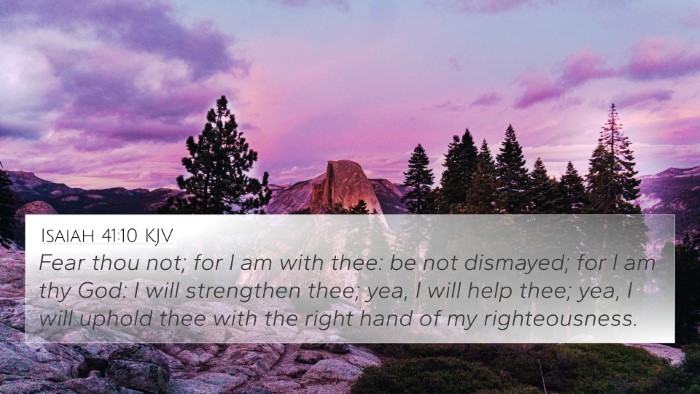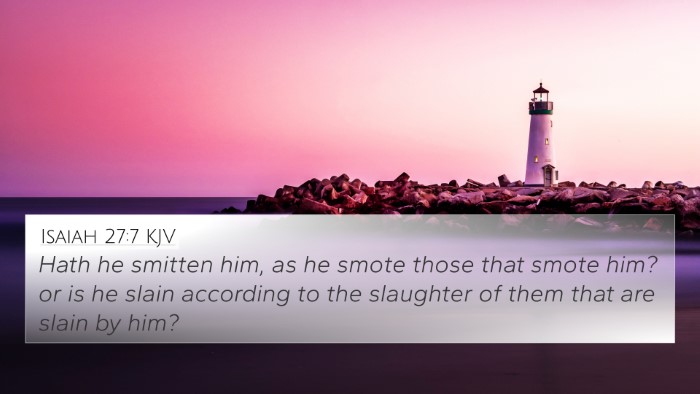Understanding Jeremiah 46:28
Jeremiah 46:28: "Fear thou not, O Jacob my servant, saith the LORD; for I am with thee: for I will make a full end of all the nations whither I have driven thee: but I will not make a full end of thee, but correct thee in measure; yet will I not leave thee wholly unpunished."
Summary of the Verse
This verse conveys a message of comfort and assurance from God to His people, specifically addressing the fears of Israel (Jacob) amidst their impending trials and the judgment of other nations. It emphasizes God's presence, His promise of eventual restoration, and His intention to discipline rather than completely destroy His people.
Insights from Public Domain Commentaries
Matthew Henry's Commentary
Matthew Henry interprets this verse as a declaration of God's unwavering support for His people, specifically Jacob (representing Israel). He highlights that despite the tumultuous circumstances surrounding Israel's future, God reassures Jacob of His continual presence and supernatural protection. Henry notes that God's assurance includes both a promise of judgment against the surrounding nations and a promise of preservation and correction for Israel, affirming that God's love includes discipline, which is for their benefit, not destruction.
Albert Barnes' Notes on the Bible
Albert Barnes expounds on the notion of "fear not," reflecting the biblical concept of God as a protector whom His children need not fear, regardless of the surrounding threats. He underscores the contrasted fate of the nations versus Israel, articulating that while the nations will face utter destruction, Israel will only experience measured correction. Barnes indicates that this correction is indicative of God's covenant fidelity; He will not abandon His promises to His people, even amid chastisement.
Adam Clarke's Commentary
Adam Clarke provides an analytical take on the implication that the phrase "I will not leave thee wholly unpunished" carries. Clarke asserts that the punishment is a necessary part of God's relational dynamic with Israel; it is meant to restore rather than ruin. He suggests that the language of “full end” references both a conclusion of current sufferings and a promise of future restoration, aligning closely with the prophetic visions throughout Jeremiah concerning redemption after trials.
Cross References for Deeper Understanding
- Isaiah 41:10: "Fear thou not; for I am with thee: be not dismayed; for I am thy God."
- Romans 8:31: "What shall we then say to these things? If God be for us, who can be against us?"
- Psalms 118:6: "The LORD is on my side; I will not fear: what can man do unto me?"
- Jeremiah 30:11: "For I am with thee, saith the LORD, to save thee: though I make a full end of all nations whither I have scattered thee, yet will I not make a full end of thee."
- Hebrews 12:6: "For whom the Lord loveth he chasteneth, and scourgeth every son whom he receiveth."
- Zephaniah 3:17: "The LORD thy God in the midst of thee is mighty; he will save, he will rejoice over thee with joy; he will rest in his love."
- Micah 7:18-19: "Who is a God like unto thee, that pardoneth iniquity, and passeth by the transgression of the remnant of his heritage?"
Thematic Connections and Cross-Referencing
Jeremiah 46:28 serves as a potent example of the themes of divine Presence and loving discipline found throughout the Scriptures. Understanding the connections within these verses provides a broader perspective on the nature of God's engagement with His people:
- Divine Protection: The recurring theme of God's protection in moments of fear and despair resonates across both the Old and New Testaments, exemplified in the references to God’s presence in Isaiah and Romans.
- Disciplinary Love: The concept of God correcting His people out of love is profoundly illustrated in Hebrews and Micah, where God’s judgments are framed as acts of love rather than mere punishment.
- Covenantal Faithfulness: The continuity of God's promise to Israel is emphasized across the referenced verses, particularly in the assurance of restoration found in Jeremiah and the loving-kindness discussed in Micah.
Practical Application: Tools for Cross-Referencing
Those studying this verse can utilize various tools for deeper biblical understanding:
- Bible Concordance: A comprehensive Bible concordance can help in locating similar themes and phrases across Scripture.
- Cross-Reference Bible Study Guides: Such guides often provide insights into thematic connections between disparate passages.
- Bible Chain References: This technique links related scriptures, enhancing the understanding of relational Biblical themes.
- Online Cross-Reference Tools: These digital resources allow for quick searches of thematic connections between verses, helpful for sermon preparation and personal study.
Conclusion
The assurance found in Jeremiah 46:28 is a profound reminder of God's unfailing love and presence amid life's challenges. By exploring the connections and themes present in this verse and utilizing cross-referencing tools, believers can experience a deeper understanding of God's character and His unwavering kinship with His people.


